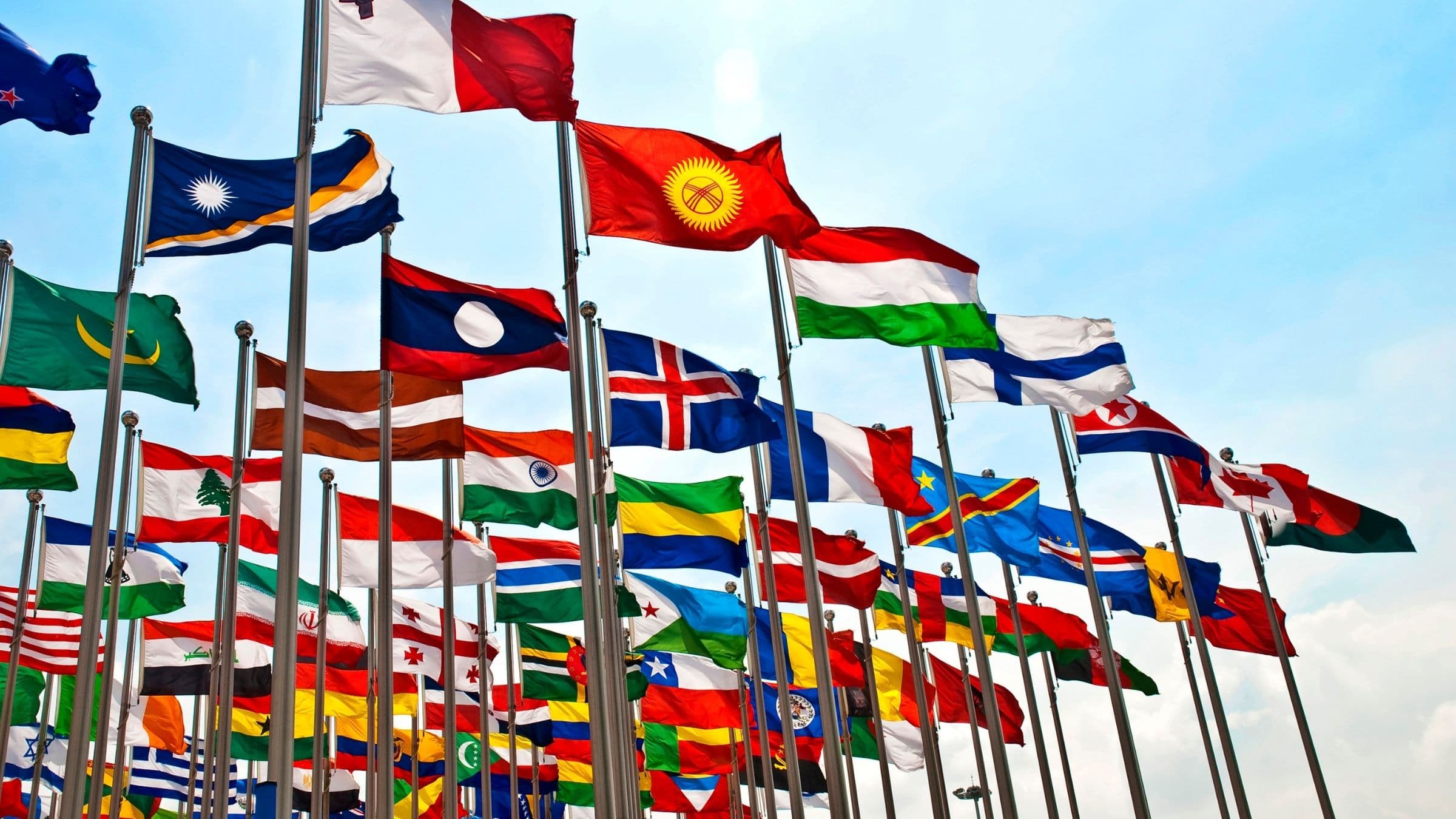
COUNTRY PROFILE
Discover more about the El Salvador market including overviews about the retail, food service, and food processing sectors. Events, resources, and more are linked throughout the profile.

5th
largest export market for U.S. processed products in Central America

$220 Million
imports of U.S. processed foods in 2023

3rd
the U.S. is the third largest supplier of consumer-oriented products to El Salvador
Euromonitor reports that the economy in El Salvador expanded in real terms in 2022, driven by increasing private consumption, capital investment, and external demand. However, the global economic slowdown, elevated inflationary pressures, and tightening financial conditions are set to raise uncertainty and weighed on the country’s economic outlook in 2023 and beyond.
USDA’s Office of Agricultural Affairs, (OAA) in San Salvador, hereinafter referred to as FAS Post San Salvador, reports that El Salvador is the smallest country by size in Central America, with an estimated population of 6.6 million inhabitants. In 2022, the United States was the third largest supplier of consumer-oriented products to El Salvador with exports valued at about US$349 million.
El Salvador is the fifth largest export market in Central America for processed food products from the U.S., importing US$226.3 million from the U.S in 2022, an increase of 13% and another new record high. In 2023 El Salvador imports of U.S. processed foods declined 3% to US$220.1 million.
Top U.S. processed food exports to El Salvador in 2023 included:
Transportation costs are key, therefore the preferred method of shipping is from Miami to Guatemalan ports, although some may come through Panama and then move via ground transportation to El Salvador. Due to an increase in corporate social responsibility programs, local sourcing of fresh produce and other perishable products is growing, and supermarkets have different programs to assist farmers to deliver high quality products.

$2.5 Billion
estimated total of retail sales of packaged food products in 2023

19%
growth rate since 2019

$3 Billion
expected growth of the packaged food market by 2028
Euromonitor has estimated that the retail sales of packaged food products in El Salvador will reach US$2.5 billion in 2023. This also represents an increase of US$405 million or 19% from 2019. Euromonitor also forecasts the packaged food market to grow to US$3 billion by 2028, an increase of US$362.7 million and 13.7% from 2024.
High growth categories in the forecast include:
FAS Post San Salvador reports that U.S. consumer-oriented products continue to feature prominently in Salvadoran retail outlets, registering a new record-high of $281.5 million of imports in 2022. The leading supermarket chain, Super Selectos, still has most of the retail market share, followed by Walmart. However, smaller retail stores have an increased number of outlets, taking some of the market share. That is the case of Dollar City, convenience store Road Market, and online supermarket stores such as KIP and Superea.
In 2022, dairy topped the list of U.S. consumer-oriented products with 30% growth and a value of over US$43 million. Processed vegetables and condiments/sauces followed in the ranking showing a growth that is coherent with the boost in the hotel/restaurant sector that has recovered, thanks to the vibrant tourism industry that reported income of over US$1.4 billion between January and May 2023.
According to the latest study available from a local marketing firm, supermarkets in El Salvador account for approximately 40% of all food retail sales in El Salvador, valued at US$1.7 billion. It is difficult to obtain specific data as supermarkets are reluctant to release exact sales information. Retail outlets are the preferred venue to purchase food items for Salvadorans, mainly because they provide a more comfortable shopping experience and offer special promotions that are not available at other food shopping venues. Hypermarkets/supermarkets and convenience stores coexist with the traditional small grocery stores (mom-and-pop) and open-air markets. There are two dominant supermarket chains in El Salvador: Super Selectos and Walmart Mexico y Centroamerica.
Super Selectos is a Salvadoran-owned retailer, currently with 107 stores and an aggressive plan of expansion to open at least five new stores per year until 2024. They plan to achieve this by partnering with commercial developments across the country to be an anchor store in those shopping centers. Super Selectos store layouts have evolved to lure consumers in and provide a more comfortable shopping experience by redesigning their stores to include wider aisles, cafeterias, and energy-efficient technologies. The Super Selectos online store was revamped during the pandemic and reported sales skyrocketed during the confinement, registering a growth of 1,200%.
Walmart Mexico y Centroamerica is the largest retailer in the region with over 600 stores. In El Salvador, it has 102 stores under different formats: Walmart Super Centers (six), Despensa de Don Juan (17), Maxi Despensa (16) and Despensa Familiar (63). Their main competitive advantage is their large and diverse offering of non-food products such as apparel, electronics, and housewares at affordable prices, functioning as a “one-stop shop” for busy people. On January 24, 2022, Walmart announced they were evaluating to sell their stores in El Salvador, although there has not been further information since then. In the press release, the company mentioned that the idea is to create strategic alliances or even sell their operations in El Salvador, Honduras, and Nicaragua, which could help accelerate their business in Costa Rica, Guatemala, and Mexico.
PriceSmart El Salvador, S. A. de C. V., with headquarters in San Diego, California, opened its third store in El Salvador, this time in the city of San Miguel to the East region of the country and have started the construction work of a fourth store at the West region, in the city of Santa Ana. With the addition of these two stores,
PriceSmart will now cover the entire country as they have two stores located in the capital city of San Salvador. Similar to membership warehouse clubs in the U.S., the stores carry a mixture of groceries (especially large-sized items), apparel, electronics, household goods, and automotive parts. PriceSmart is one of the preferred food retailers for large families and restaurant owners.
FAS Post San Salvador reports that categories of interest are organic foods and beverages; dairy substitutes such as vegetable “milks” (almond, soy, and coconut, in both unflavored and flavored varieties); cereal or oatmeal with ancient grains such as quinoa, chia, and amaranth; lactose-free/gluten-free/sugar-free beverages; whole wheat bread and/or seeds-based products including granola bars and flaxseed products; artisan-made and special sauces and condiments; energy boosters such as shakes, juices, energy bars; natural juices, both regular and reduced sugar content (targeting children); specialty dairy products (herbal butter, European-style cheeses, etc.); sugar-free and gluten-free cookies, candy, baking mixes, etc.; deli meats and specialty seafood (100% U.S. origin), and ready-to-serve platters.
FAS Post San Salvador reports that the Salvadoran hotel, restaurant and institutional (HRI) sectors continue to improve their performance in 2022 as the tourism sector shows a full recovery. The latest statistics by Euromonitor show that Salvadorans increased their spending to US$2.5 billion in the Hotels/Catering category during 2022. Recent data provided by the Minister of Tourism shows that El Salvador received 2.2 million foreign visitors as of August 2023, representing 25% more than in the same period of 2019.
Income generated by tourism was US$1.6 billion as of June 2023, and the tourism sector contributed about 10% to the GDP, which is double what it contributed before the pandemic. For the first time, El Salvador registered 100,000 visitors from the U.S., mainly Salvadorans returning to visit along with their second or third generations. Many from the diaspora have returned to invest by starting new hotel/restaurant operations in the eastern region of the country.
The HRI sector in El Salvador, as in most places, values fast service and high quality at the lowest price. Local food manufacturers are adapting to package sizes and specific flavor profiles required by the HRI sector and competing with long-time suppliers from Mexico and neighboring Central American countries. In addition, the HRI sector is working to increase the direct import volume of raw materials to reduce costs.
The most recent statistical data from the restaurant sector is a study from 2019, which was the very first study sponsored by the Salvadoran Restaurant Association and provides a good review of the sector. They reported a total of 784 formally registered restaurants that generated US$709 million, representing 2.9% of El Salvador’s GDP. In addition, there are other unofficial dining options for Salvadoran consumers, ranging from small cafeterias to traditional food stands, and more recently, food trucks. The latter trend started in 2015 with two food trucks and now consists of over 25 brands that offer high quality gourmet food options at more affordable prices.
Depending on the format, specialty or franchise, most restaurants purchase fresh produce from local suppliers and large open-air markets. Franchises and other international restaurants usually import directly or purchase from local importers/distributors, or wholesalers such as PriceSmart, that sell the products they need in large-sized packages.
FAS Post San Salvador reports that high value products offer good market opportunities in El Salvador include that since El Salvador is a major consumer of baked products, so there is still potential for baked items and inputs. Other products with high demand are dairy, fruit and vegetable juices, premium beef cuts, and deli meats. Allergen related products such as gluten-free and lactose-free are present, but a wider selection of products and brands would be well accepted.

3.4 Billion
El Salvador imported approximately US$3.4 billion in agricultural products in 2022
FAS Post San Salvador reports that El Salvador’s food manufacturing sector has been able to successfully adapt to a challenging environment and has provided signals of a rapid recovery, despite facing a continuous crisis generated by the COVID-19 pandemic and the supply chain shortages that increased the costs of raw materials and other inputs needed to produce food.
According to the latest data available for the sector, published by the Salvadoran Industrialist Association, a total of US$1.3 billion value of ingredients was imported in 2021, which is about 13% more than in 2020. Meat products, animal fats, and vegetable oils were among the main products imported by the food industry in the same period. The U.S. was the second supplier of intermediate food products to El Salvador during 2022.
FAS Post San Salvador reports that El Salvador’s global imports of agricultural intermediate products reached $715 million in 2022, a 26% increase from 2021. The snack industry has helped El Salvador to keep its regional leadership status, as well as the production of juices and carbonated beverages. The manufacturing of sweet bread targeted to Salvadorans living abroad has positively impacted the growth of baking inputs import numbers.
With over 10,800 processing facilities, the food and beverage industries play a key role in the Salvadoran economy, representing 30% of the manufacturing sector. El Salvador is a major importer of agricultural products, including food ingredients and a wide variety of consumer-oriented products. In 2022, El Salvador imported approximately US$3.4 billion in agricultural products. According to the RANKING® of Industrial Exporters/2022, a report published by the Salvadoran Industrialists Association (ASI in Spanish), the food manufacturing sector exported a value of US$527.2 million during 2021, a growth of 12.3% compared to 2020, where the sector lost about $14.3 million due to the COVID-19 confinement.
Central American countries, Mexico, and Chile are the main trade competitors for the United States regarding consumer-oriented products. Generally, Salvadoran food manufacturers rely on imports of ingredients. High food safety standards, excellent quality and technical support or assistance in the development of new products all give U.S. food ingredients a competitive advantage.
FAS Post San Salvador reports that there is still potential for many U.S. ingredients to increase market share in El Salvador, specifically dairy, beef, bakery ingredients/goods, fresh fruits, and vegetables. There are great opportunities to introduce U.S. seafood to the Salvadoran market. In addition, the baking industry has a growing demand for preserved fruits, large fresh strawberries, almonds, and other nuts for healthy snacks or baked goods. Another trend is for healthy, reduced sugar foods and beverages, creating a potential market for natural sweeteners, assorted flavor juices, and fruit extracts.
Categories with potential growth for the manufacturing industry in El Salvador are flours, baked products, and prepared foods targeted to the Salvadoran diaspora, and confectionery products. Salvadoran food manufacturers rely on imports of intermediate products because of a lack of availability or local production. The United States was the number one supplier in this category in 2021 with a market share of 31%.